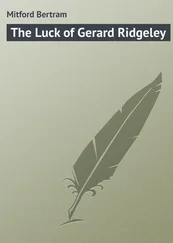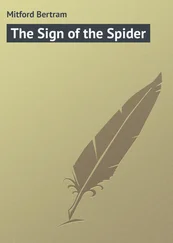Bertram Mitford - The Red Derelict
Здесь есть возможность читать онлайн «Bertram Mitford - The Red Derelict» — ознакомительный отрывок электронной книги совершенно бесплатно, а после прочтения отрывка купить полную версию. В некоторых случаях можно слушать аудио, скачать через торрент в формате fb2 и присутствует краткое содержание. Жанр: foreign_prose, на английском языке. Описание произведения, (предисловие) а так же отзывы посетителей доступны на портале библиотеки ЛибКат.
- Название:The Red Derelict
- Автор:
- Жанр:
- Год:неизвестен
- ISBN:нет данных
- Рейтинг книги:5 / 5. Голосов: 1
-
Избранное:Добавить в избранное
- Отзывы:
-
Ваша оценка:
- 100
- 1
- 2
- 3
- 4
- 5
The Red Derelict: краткое содержание, описание и аннотация
Предлагаем к чтению аннотацию, описание, краткое содержание или предисловие (зависит от того, что написал сам автор книги «The Red Derelict»). Если вы не нашли необходимую информацию о книге — напишите в комментариях, мы постараемся отыскать её.
The Red Derelict — читать онлайн ознакомительный отрывок
Ниже представлен текст книги, разбитый по страницам. Система сохранения места последней прочитанной страницы, позволяет с удобством читать онлайн бесплатно книгу «The Red Derelict», без необходимости каждый раз заново искать на чём Вы остановились. Поставьте закладку, и сможете в любой момент перейти на страницу, на которой закончили чтение.
Интервал:
Закладка:
“Certainly not,” answered the prelate, entering thoroughly into the fun of the thing; “not for a moment.”
“ Roma locuta – causa finita ,” pronounced Wagram with mock solemnity, handing her the plate. “Of course, I bow.”
“In that case I must treat you with generosity, and will talk to you now, especially as you are dying to know where and how I got my trout. I got them both, then, within fifty yards of each other; one in the hole below Syndham Bridge, the other at the tail of the hole; one with a Wickham’s Fancy, the other with a small Zulu – ”
“Didn’t Hood play them for – ?”
“Ssh-h-h! You’ll get into trouble again,” interrupted Yvonne. “You’re repeating the offence, mind.”
“ Peccavi .”
“I’ll forgive you again on one condition: I’m just spoiling for a bicycle ride. You shall take me for one this afternoon.”
“Won’t the whole day be enough for you?”
“Not quite. The afternoon will, though.”
“Well, that’ll suit me to a hair. We’ll make a round, and I’ll look in at Pritchett’s farm; I want to see him about something. What do you think, Haldane? Are you on?”
“Very much off, I’m afraid. I sent my machine in to Warren’s to be overhauled. He promised it for yesterday morning, but the traditions of the great British tradesman must be kept up. Wherefore it is not yet here. But you take the child all the same.”
At first Yvonne declared she didn’t want to go under the circumstances, but was overruled.
“I’ve got to go into Fulkston on business, Sunbeam,” said her father, “so I shall be out of mischief, anyhow. I’ll borrow one of the Squire’s gees, if I may.”
“Why, of course,” said the Squire. “You know them all, Haldane. Tell Thompson which you’d rather ride.”
Then the conversation turned to matters ecclesiastical, also, as between the two old gentlemen, reminiscent. They had been schoolfellows in their boyhood, but the clean-shaven, clear-cut face of Monsignor Culham, and the white hair, worn rather long, gave him a much older look than the other; yet there was hardly a year’s difference between them. Both had in common the same tall, straight figure, together with the same kindly geniality of expression.
“I think I shall invite myself this time next year, Grantley,” said the prelate. “It is really a privilege to take part in such a solemnity as we held yesterday. It makes one anticipate time – very much time, I fear – when such is more the rule throughout the country than an isolated and, of course, doubly valued privilege.”
“My dear old friend, I hope you will. Only you must pardon my reminding you that it is for no want of asking on my part that ages have elapsed since you were here. And they have.”
“Well, it certainly wasn’t yesterday, and I concede being in the wrong,” rejoined Monsignor Culham. “But I have been in more than one cathedral church where the solemnities were nothing like so carefully and accurately performed. It was a rare pleasure to take part in these.”
“Here, Wagram, get up and return thanks,” laughed Haldane. “If it weren’t breakfast-time one would have said that Monsignor was proposing your health.”
“The lion’s share of the kudos is due to Father Gayle,” said Wagram. “He and I between us managed to knock together a fairly decent choir for a country place, which includes Haldane, a host in himself, and, incidentally, Yvonne. The rest is easy.”
“‘Incidentally Yvonne!’” repeated that young person with mock resentment.
“I don’t know about easy,” declared Monsignor Culham. “The fact remains you had got together an outside crowd who weren’t accustomed to singing with each other – over and above your own people.”
“Yes; but we sent word to the convent asking them to practise their children in what we were going to sing – and to practise them out of doors, too. For the rest of those who helped us we trusted to their intuitive gumption.”
“Ah, that’s a good plan,” said the prelate; “there’s too little care given to that sort of thing. Singers on such an occasion are left to sort themselves. Result: discord – hitches innumerable.”
“I know,” said Haldane. “I was on the sanctuary once in a strange church. They were going to have the Te Deum solemnly sung for an occasion. I asked for a book with the square notation score. They had no such thing in their possession, and the consequence was everyone was dividing up the syllables at his own sweet will. It was neither harmonious nor jubilant.”
“I should think not,” assented Wagram emphatically. “Now, there is hardly an outdoor function I have been present at which hasn’t represented to my mind everything that outdoor singing ought not to be. Unaccompanied singing is too apt to sound thin, and if backed up with brass instruments it sounds thinner still. So we dispense with them here, and our oft-repeated and especially final injunction to all hands is: ‘Sing up!’”
“Well, it certainly was effective with your singers, Wagram,” pronounced Monsignor Culham, “and I shall cite it as an instance whenever opportunity offers.”
“That’s good, Monsignor,” returned Wagram. “We want all round to make everything as solemn and dignified and attractive as possible, as far as our opportunities here allow, especially to those outside; and we have reason to know that good results have followed.”
“In conversions?”
“Yes. We throw open the grounds to all comers on these occasions, and in the result some who come merely to see a picturesque pageant are impressed, and – inquire further.”
“I wonder what proportion of the said ‘all comers’ confine their sense of the picturesque to the tables in the marquee,” remarked Haldane, who was of a cynical bent.
“Well, you know the old saying, Haldane – that one of the ways to reach a man’s soul is through his stomach,” laughed the Squire. “Anything in that paper, by the way?”
“N-no,” answered Haldane, who had been skimming the local morning paper, while keeping one ear open for the general conversation. “Wait, though – yes, this is rather interesting – if only that it reminds me of a bad quarter of an hour once owing to a similar cause. Listen to this: ‘The R.M.S. Rhodesian , which arrived at Southampton yesterday evening, reports passing a derelict in latitude 10 degrees 5 minutes north, longitude 16 degrees 36 minutes West. The hull was a dull rusty red, and apparently of about 900 or 1000 tons burthen. The vessel was partly submerged, the forecastle and poop being above water. About eight feet of iron foremast was standing, and rather more of mizzen-mast, with some rigging trailing from it. No name was visible, and the hulk, which had apparently been a long time in the water, was lying dangerously in the track of steamers to and from the Cape.’ I should think so indeed,” continued Haldane with some warmth. “It was just such a derelict that scraped past us one black night when I was coming home in the Manchurian on that very line. It was about midnight, and everybody had turned in, but the skipper and I were having a parting yarn on the hurricane deck. We were so close to the thing that the flare of our lights showed it up barely ten yards from us; then it was gone. I asked the skipper what would have happened if we’d hit it straight and square, and he said he was no good at conundrums, but would almost rather have run full speed on against the face of a cliff.”
“I suppose there was great excitement in the morning?” said the Squire.
“Not any; for the simple reason that nobody knew anything about it. The occurrence was logged, of course, but the skipper asked me not to blab, and I didn’t. Most of the passengers were scary enough over the risks they knew about, he said, and if you told them a lot more that they didn’t many of them would die.”
Читать дальшеИнтервал:
Закладка:
Похожие книги на «The Red Derelict»
Представляем Вашему вниманию похожие книги на «The Red Derelict» списком для выбора. Мы отобрали схожую по названию и смыслу литературу в надежде предоставить читателям больше вариантов отыскать новые, интересные, ещё непрочитанные произведения.
Обсуждение, отзывы о книге «The Red Derelict» и просто собственные мнения читателей. Оставьте ваши комментарии, напишите, что Вы думаете о произведении, его смысле или главных героях. Укажите что конкретно понравилось, а что нет, и почему Вы так считаете.












